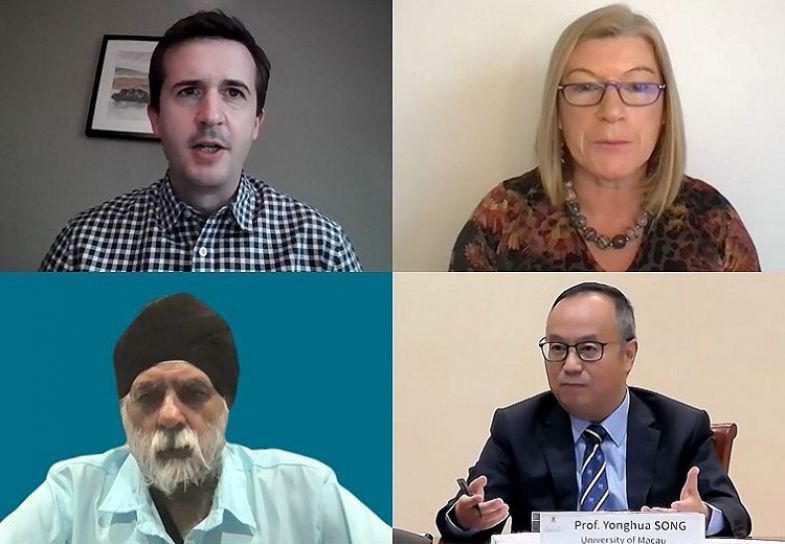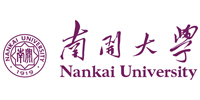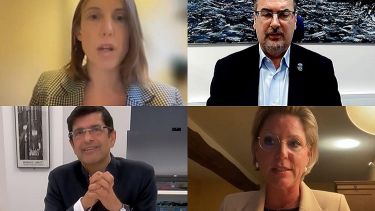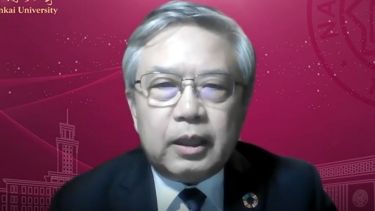
Vice-chancellors faced tough decisions from all angles during the pandemic, and the post-Covid environment is proving equally stormy. What qualities make an effective vice-chancellor in this context?
The job of a vice-chancellor has never been simple, but the onset of the global pandemic in 2020 added layers of challenge and complexity to the role. Universities had to respond to an ever-changing landscape, locking down campuses or pivoting courses to be delivered online, while staff and students looked to leaders to guide them through tough times.
As countries and institutions emerge from the pandemic at different rates, existing economic and social challenges have intensified, while new environmental, political and technological issues emerge.
During a session at the 2022 THE Leadership and Management Summit, a panel of university leaders agreed that vice-chancellors would need to draw on lessons acquired over the past three years to find future success. “Covid gave us permission to tap into styles of leadership we had not previously used,” explained Cara Aitchison, president and vice-chancellor of Cardiff Metropolitan University.
Aitchison noted that the demands of the pandemic drew staff and students out of silos and reinforced the importance of clear and frequent communication. “It also reminded us of the need for sound judgement and the clear-sightedness vice-chancellors need to work at pace based on the evidence they have.
Pal Ahluwalia, president and vice-chancellor of the University of the South Pacific, faced a unique challenge on top of the issues thrown up by the pandemic, after his institution became mired in a governance scandal in 2020. “This added a level of complexity I had neither the specific experience or training for,” he said. “We had to learn how to navigate this, on top of working with 12 governments with very different agendas, all at different points in the pandemic cycle.”
Ahluwalia found his senior leadership team to be a vital source of support during this perfect storm, he said. “I learned that you can’t do this alone and you need to coalesce in crisis. We needed to communicate in a different way and marshal the resources we needed to deliver the mission and strategy we’d put in place.”
Approaching challenges as potential opportunities is a vital quality in a vice-chancellor, according to Yonghua Song, rector of the University of Macau. Over the past two years, the number of applicants for undergraduate, master’s and doctoral degrees at his university has tripled, while research projects and international collaborations have also grown.
“Leadership needs to be more adaptive and flexible because you can’t just stick with what you’re used to,” he said. “In such a rapidly changing environment, senior management needs to work together. We also need to learn from others [outside the university]…Our Covid policies have been stricter here, for example, but we can learn from Europe and North America, where campuses have opened up.”
Effective vice-chancellors who come into a university from outside are often more impactful than those who have achieved the position through promotion, the panel agreed. “I think there’s an advantage to coming in from outside,” Aitchison said. “I can draw on the excellence practice I’ve seen at other institutions I’ve worked in and adapt it to fit the context I’m in now. Furthermore, I think people possibly expect and accept more change from someone coming in. The downside is that maybe you don’t understand the nuances of the cultural politics of the institution, so you need to quickly network and build trust.”
Ahluwalia agreed that a vice-chancellor who could quickly form a team and build trust could drive things forward, regardless of their route into the institution. “The most important thing is for a leader to have the respect of the troops, that they command that respect, or “mana” as we call it in the South Pacific. Researchers will be able to sniff out quickly if you have any credibility or not,” he said.
That said, vice-chancellors should not strive to ingratiate themselves with staff and students. “Popularity should not be the aim for any vice-chancellor,” Song said. “It is the trust, confidence and respect you gain from your vision and actions that are important.” Aitchison reflected that it could be a solitary role because even with the support of their senior team, vice-chancellors tend to be one step removed.
Opinions varied on the ideal length of tenure for an effective vice-chancellor, with Ahluwalia concluding that “if you lose passion for what you do, you know it’s time to go. Most vice-chancellors want to leave the university in a better position than they inherited it.”
The panel:
- Chris Havergal, news editor, Times Higher Education (chair)
- Pal Ahluwalia, president and vice-chancellor, University of the South Pacific
- Cara Aitchison, president and vice-chancellor, Cardiff Metropolitan University
- Yonghua Song, rector, University of Macau








